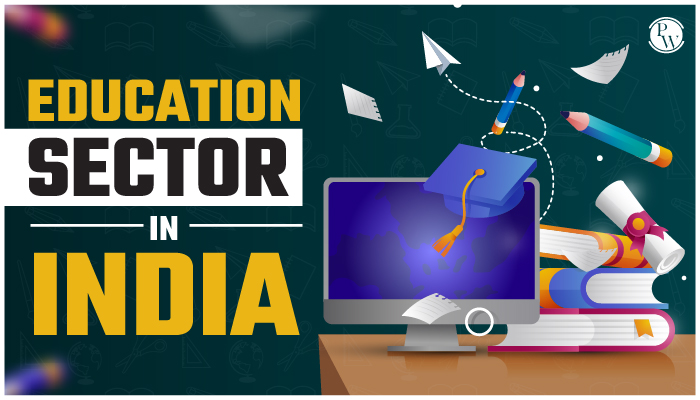AUTHOR : KIM FERNANDEZ
DATE : 04/03/2024
Introduction
In recent years, the education sector[1] in India has witnessed a remarkable transformation[2], with technology[3] playing a pivotal role. One of the significant advancements is the integration of payment processors[4] within educational institutions, revolutionizing the way financial transactions[5] are managed.
The Need for Payment Processors in Educational Technology
Addressing Manual Transaction Hassles
Traditionally, educational institutions[1] in India have grappled with the complexities of manual fee collection. Payment processors alleviate this burden by automating the entire process, reducing errors, and saving valuable time for both administrators[2] and parents.

Enhancing Financial Transparency
The demand for transparency[3] in financial transactions within educational institutions has been on the rise. Payment processors provide a clear and traceable record of all transactions[4], fostering a transparent financial environment.
Benefits of Payment Processors in Educational Institutions
Streamlined Fee Collection
The implementation[5] of payment processors streamlines the fee collection process, allowing parents to make payments conveniently through various channels such as credit cards, debit cards, and online banking.
Secure Online Transactions
Ensuring security holds utmost importance, particularly in the realm of financial transactions. Payment processors in educational technology not only ensure that all online transactions are encrypted and secure but also play a pivotal role in safeguarding sensitive financial information effectively.
Real-time Financial Monitoring
Educational institutions can now monitor their financial health in real-time; thanks to the robust reporting and analytics features integrated into payment processors, this facilitates informed decision-making and strategic financial planning effectively.
Popular Payment Processors in India’s Educational Sector
Razorpay
Razorpay has not only emerged as a leading payment processor for educational technology in India but also stands out by offering a user-friendly interface and a diverse range of payment options. Its seamless integration with educational management systems further enhances fee collection efficiency, making the entire process hassle-free.

Paytm for Education
Renowned for its widespread usage across various domains, Paytm has seamlessly extended its services to the education sector. Paytm for Education not only provides a secure and convenient platform for fee payments but also caters to a vast user base with unparalleled efficiency.
Instamojo
Instamojo’s payment solutions have gained popularity among smaller educational institutions. With a focus on simplicity and ease of use, Instamojo enables educational establishments to manage their finances effectively.
Challenges and Solutions
Cybersecurity Concerns
While Payment Processor Educational Technology In India bring convenience, it’s crucial to acknowledge the potential risk of cybersecurity threats. Therefore, educational institutions not only need to implement robust security measures but must also stay updated on the latest cybersecurity practices to effectively safeguard sensitive information.
Technological Adaptation
The adoption of payment processors requires a certain level of technological infrastructure. Institutions facing challenges in technological adaptation should gradually implement these solutions, ensuring a smooth transition.
Impact on Students and Parents
Convenient Fee Payments
For students and parents, the introduction of payment processors translates to convenience. No more standing in long queues; fees can be paid from the comfort of home, making the entire process hassle-free.

Financial Planning and Tracking
Payment processors not only empower parents to track and plan their finances effectively but also, with detailed transaction histories and automated reminders, make financial planning more accessible and efficient.
Case Studies: Successful Implementation
XYZ School’s Transition to Online Payments
XYZ School, located in Mumbai, successfully transitioned to online fee payments using Razorpay. The implementation resulted in a 30% reduction in administrative workload and also increased parent satisfaction.
ABC University’s Experience with Payment Processors
ABC University embraced Paytm for Education, witnessing a surge in online fee payments. The university reported enhanced financial transparency and a notable decrease in late fee payments.
Future Trends in Educational Technology: Payment Processing
Integration with Learning Management Systems
The future holds the integration of payment processors with learning management systems (LMS), creating a seamless experience for both educators and learners.
Artificial Intelligence in Financial Management
Artificial intelligence (AI) is set to play a vital role in financial management within educational institutions, predicting trends, optimizing budgets, and enhancing overall efficiency.
Government Initiatives and Regulations
Digital India Campaign
The Digital India campaign not only supports but actively advocates for the widespread adoption of digital solutions in various sectors, including education. Educational institutions are thereby encouraged to embrace digital payment methods, fostering a more connected and efficient system overall.
RBI Guidelines for Educational Institutions
The Reserve Bank of India (RBI) has not only issued guidelines to ensure the secure implementation of payment processors in educational institutions but has also emphasized the need for robust cybersecurity measures and strict compliance with financial regulations.

The Road Ahead: Challenges and Opportunities
Balancing Affordability and Innovation
As institutions explore innovative payment solutions, striking a balance between affordability and innovation is crucial. The challenge lies in adopting cutting-edge technology without imposing financial burdens on students or parents.
Navigating Regulatory Changes
The evolving regulatory landscape not only requires educational institutions to stay informed but also mandates them to adapt swiftly. Navigating regulatory changes ensures seamless compliance and fosters a stable environment for the integration of payment processors.
Conclusion
In conclusion, the incorporation of payment processors in educational technology in India marks a significant leap towards efficiency, transparency, and convenience. As technology undergoes continuous evolution, educational institutions must proactively embrace these advancements, ensuring a seamless experience for students, parents, and administrators alike.
(F&Q)
- Are payment processors secure for online transactions at educational institutions?
- Yes, payment processors prioritize security and use encryption to safeguard sensitive information.
- Yes, payment processors prioritize security and use encryption to safeguard sensitive information.
- How can smaller institutions benefit from payment processors?
- Payment processors like Instamojo cater to smaller institutions, offering simplicity and ease of use.
- Payment processors like Instamojo cater to smaller institutions, offering simplicity and ease of use.
- What role does artificial intelligence play in educational finance management?
- AI predicts trends, optimizes budgets, and enhances overall financial efficiency within educational institutions.
- AI predicts trends, optimizes budgets, and enhances overall financial efficiency within educational institutions.
- How can institutions balance affordability and innovation in payment solutions?
- Striking a balance involves careful consideration of cost-effective yet innovative payment solutions.
- Striking a balance involves careful consideration of cost-effective yet innovative payment solutions.
- What government initiatives support digital payments in education?
- The Digital India campaign encourages the widespread adoption of digital solutions, including payment processors, in the education sector.







